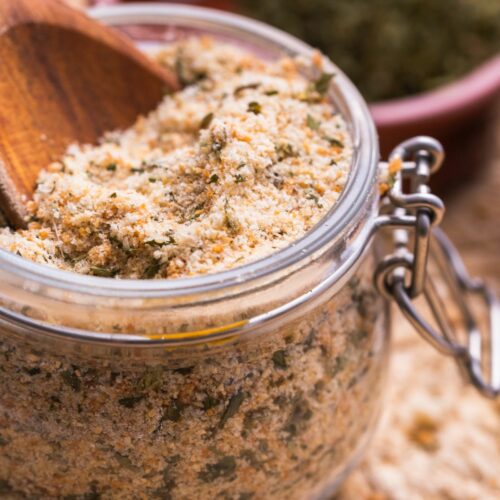The worst foods to buy at the grocery store are usually those little to no nutritional value and high levels of unhealthy ingredients. These items are often in tempting packaging and conveniently placed on the shelves. While it might be easy to reach for these foods, choosing the wrong products can lead to health issues and make it difficult to support a healthy lifestyle. Knowing which foods to avoid at the grocery store can help buyers be more mindful of what to put in the shopping cart.

10 Foods You Should Never Buy At the Grocery Store
1. Pre-cut produce
Buying pre-cut fruits and vegetables can save you time, but it’s best to avoid it. Not only can you end up paying more in the end, since there are often large markups on pre-cut fruits and vegetables, but there are also potential sanitation risks and environmental concerns.
There is a risk of sanitation issues or contamination, since employees may not have washed their hands properly or worn gloves before cutting and packaging the fruit. Additionally, pre-cut produce is packaged in plastic, which becomes an environmental issue once in the landfill. Overall, it’s better to buy whole fruit, as it’s less expensive and more fresh, or look for packaging that ensures freshness and sanitation.
2. Prepared meals
On days when you don’t have time to pack a lunch or don’t have the energy to cook dinner, it’s tempting to grab a prepared meal from a grocery store. While this cuts down on the time and effort it takes to prepare a meal, you ultimately spend more and risk higher sodium, additional unhealthy fats, and unnecessary preservatives when you opt for a prepared meal.
Additionally, when food is heated in plastic containers, some chemicals can make their way into the food. These could potentially cause health issues in the long run.
3. Frozen waffles and pancakes
While you can save time buying pre-packaged frozen waffles or pancakes for breakfast, it’s better to make them on your own. If you look at the ingredients list for pre-packaged frozen waffles or pancakes, there are many additives and sugars. Instead, you can make your own waffle or pancake batter, and you can double or triple batches to freeze.
4. Unpasteurized milk
It’s best to purchase pasteurized milk since unpasteurized milk, or raw milk, might contain harmful bacteria. While unpasteurized milk has become more popular due to social media and those that believe in the health benefits of consuming raw milk, there are actually laws prohibiting its sale at grocery stores in some states.
States Where Selling Unpasteurized Milk is Illegal
- Alabama
- Alaska
- Delaware
- Florida
- Georgia
- Hawaii
- Indiana
- Iowa
- Louisiana
- Maryland
- Michigan
- Montana
- Nevada
- New Jersey
- North Carolina
- North Dakota
- Ohio
- Rhode Island
- South Carolina
- Tennessee
- Virginia
- Washington
- West Virginia
Pasteurization not only improves the quality and taste, but it also ensures the milk you buy at the store is safe to drink, as it eliminates any harmful germs and severely reduces the risk of salmonella or listeria. Consuming raw milk that has not been through the pasteurization process can lead to diarrhea, vomiting, and stomach cramping.
5. Ready-to-eat cooked foods
While ready-to-eat foods may be tempting to buy during your grocery run, it’s best to avoid purchasing them. Not only is it difficult for the store to keep prepared hot foods and cold foods at the right temperatures, but there are also bacterial growth risks and the potential for cross- contamination with dirty hands and allergen concerts.
Turnover of ready-to-eat cooked foods is also essential for quality control. So, unless you can grab the items right after they’re stocked or just having been replenished, then you want to avoid purchasing these foods when shopping.
6. Name-brand cereals
Many name-brand cereals offer little nutritional value, and you are often overpaying for the packaging design and advertising. These cereals are generally packed with sugar and artificial flavoring, with low fiber or protein content. While you can usually save on costs by purchasing the store brand versions, you still want to check the labels for nutritional content.
7. Damaged canned goods
Avoid purchasing damaged canned goods at the grocery store. When you see that a can is rusting, leaking, or you notice a particularly large dent, it’s better to choose a different one.
A large dent on the top or the side seam of the can could mean that bacteria has entered. If you see just a small dent, but there aren’t any other issues, it should be safe to eat.
8. Off-color foods
If bread, produce, or meat doesn’t look like the right color or displays other signs of food safety concern, avoid buying it. Strange colors or odd smells can be signs of spoilage.
When buying meat, make sure it is brightly colored and doesn’t exude any foul odor. Also, check that the packaging doesn’t have any bubbles, leaks, or any other issues. If there are seal issues, bacteria can possibly grow.
9. Prepared meats
While it’s more convenient to buy your meat already cut up or marinated, prepared meat from the grocery store isn’t always the best quality. You can also pay a significant markup when you purchase your meat pre-chopped or marinated.
Not only is it more economical to prepare meat on your own in advance, but it also guarantees there aren’t contamination issues or unwanted preservatives and flavorings. If you’re in a time constraint and must purchase already prepared meats, always check for freshness labels and for proper storage.
10. Baked goods
It’s best to avoid buying baked goods from the bakery section at the grocery store. Baked goods might not be as fresh as you’d like since they can arrive at the store frozen before they’re prepared for people to grab. In addition, the ready-made baked goods can also be costly.
Since it can be time-consuming to make baked goods from scratch, one option is to buy pre-made mixes to cut down on time. And when you bake at home you have control of the ingredients and how much you use. Also, buying from local bakeries are more likely to use fresher, quality ingredients.





